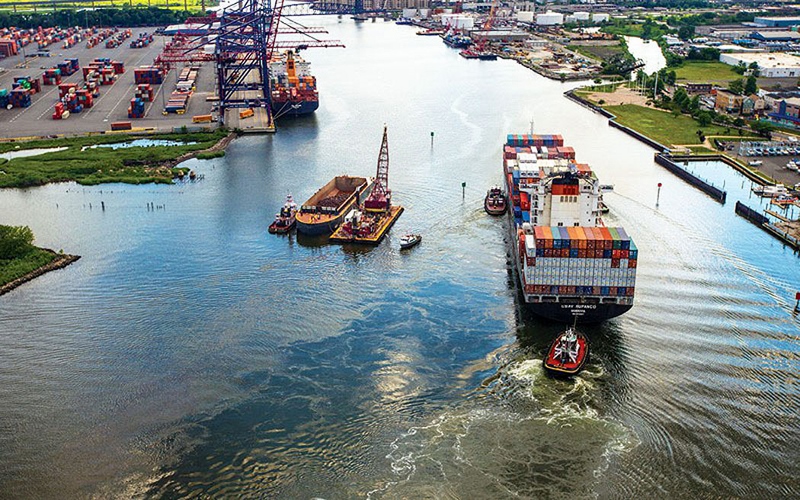Two new regional plans for the Northeast and Mid-Atlantic propose a framework for closer cooperation between government agencies that review and permit new uses of the ocean.
It sounds like a no-brainer. But there are often problems with left hand-right hand coordination when it comes to decision making for U.S. waters.
The recent history of “ocean action plans” stems from the Obama administration’s 2010 National Ocean Policy initiative, with its goals of maintaining healthy ocean ecosystems and sustainable ocean uses, while minimizing conflicts and supporting efficiency and economic growth.
This effort was spurred in part by the administration’s support for developing wind power off the East Coast. But the concept has been a bipartisan cause for two decades, with roots going back to the 1990s.
In the Port of New York and New Jersey, the Corps of Engineers in 1996 estimated some 5 million cu. yd. of sediment would need to be dredged to accommodate the container ships of that decade.
Meanwhile, new methods for testing the mud’s toxicity – a legacy of industrial waste that once flowed freely into the harbor – showed most of the material would be unacceptable for disposal at the Mud Dump, the traditional ocean disposal area beyond Ambrose Light.
And so, incalculable delays and chaos appeared imminent. Industry and labor predicted economic apocalypse, while fishermen and environmental activists saw the same for the ocean.
Some agencies, like the National Marine Fisheries Service, showed up late to the party. But ultimately, the various players were corralled, and a new management regime adopted to handle contaminated sediments and keep the port thriving.
The New York dredging was one of many examples that led to the federal Ocean Act of 2000, when President George W. Bush established the U.S. Commission on Ocean Policy, chaired by former Navy Adm. James D. Watkins.
“A comprehensive and coordinated national ocean policy requires moving away from the current fragmented, single-issue way of doing business and toward ecosystem-based management,” Watkins wrote in 2004. “This new approach considers the relationships among all ecosystem components, and will lead to better decisions that protect the environment while promoting the economy and balancing multiple uses of our oceans and coasts.”
That sounds just like what the Obama administration is aiming to do. We shall see if it works this time.




